
 |
|
|
Vegetables
Volume 63 Number 6 Date 06/07/2018 COLORADO POTATO BEETLE - Larvae in southern and west-central Wisconsin are primarily in the first and second instars. Bacterial insecticide treatments with Bacillus thuringiensis var. tenebrionis (Btt) are most effective at this time, while the larvae are very small. Growers using a bacterial product should be aware that these materials persist only a few days and must be reapplied 2-3 times to effectively control populations. Treatment is recommended when 6-8 inch plants show 20-30% defoliation. IMPORTED CABBAGEWORM - Egg hatch and larval damage to cabbage and other vegetables in gardens and field production areas have intensified. Larvae observed on a La Crosse County CSA farm were approximately ¼ inch long on June 5. Manual removal of the caterpillars from the undersides of cabbage leaves will provide reasonable control in gardens. Bt or another insecticide may be required for larger plantings. POTATO LEAFHOPPER - Nymphs have not been detected in alfalfa thus far, but first-generation immature leafhoppers should soon begin appearing in sweep net collections. A corresponding population increase on vegetable hosts such as snap beans and potatoes can also be expected in the next two weeks. SQUASH VINE BORER - Moth emergence and the start of egg laying is forecast for next week in advanced southern and western areas. A phenological indicator of the appearance of this orange and gray clearwing moth is when chicory is in full bloom. Pumpkins, melons, squash and other vine crops should be monitored for adult borers once 900-1,000 degree days (modified base 50°F) have been reached. The lower range of this threshold will be surpassed by June 14 near La Crosse, Platteville and Spring Green. Yellow trap pans are an effective method of detecting squash vine borer activity in the garden since the moths are attracted to yellow. Any yellow container (e.g. bowl, pan or pail) can be used, filled with water to capture the insects. Traps should be checked daily. The first capture of SVB adults signals it is time to take further action to prevent egg laying. FLEA BEETLE - Damage to beets, leafy greens, potatoes and other vegetables has intensified in home gardens and larger field production areas. Significant defoliation can usually be tolerated by host plants and treatment is not advised unless large numbers of beetles are present on all plants and defoliation exceeds 30%. -- Krista Hamilton, DATCP Entomologist 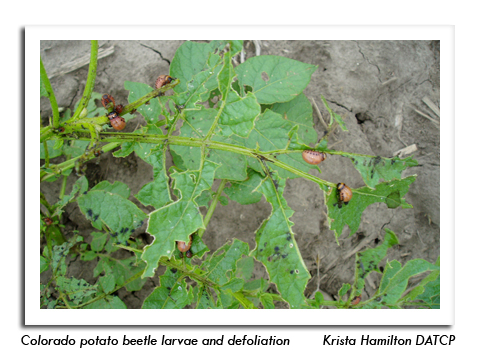
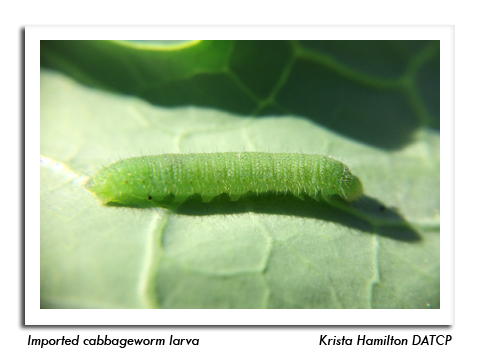
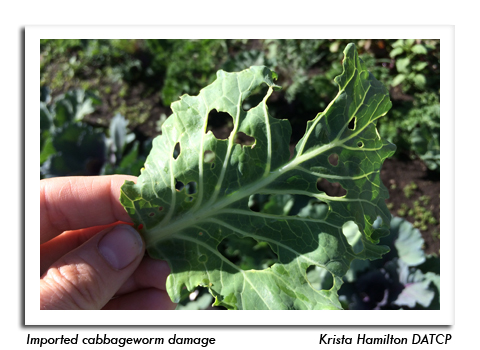
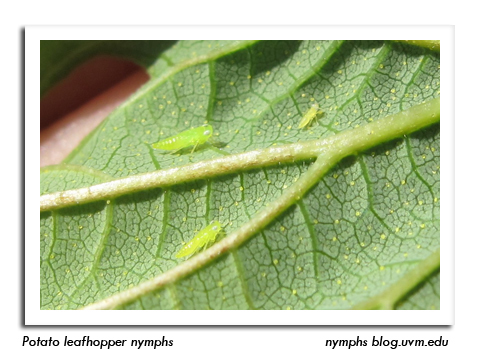
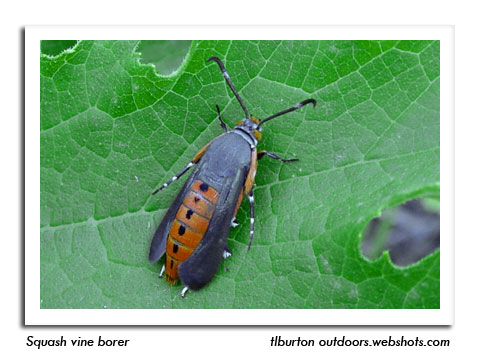
|
|
|